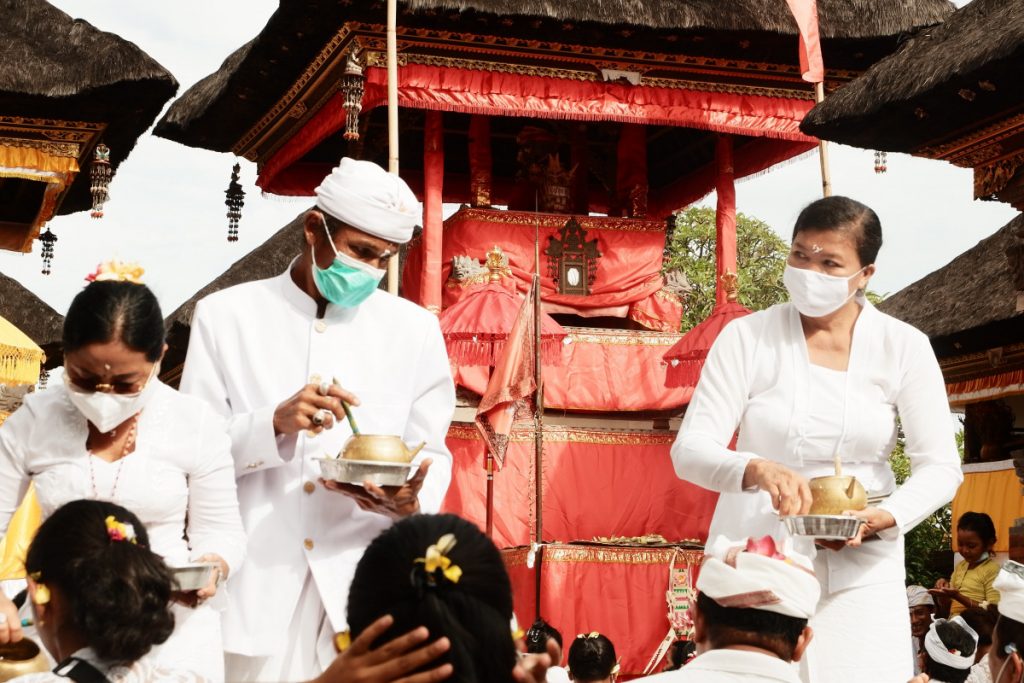To stay safe and informed about the situation in Bali and Indonesia, including travel prohibitions and visa restrictions, follow these helpful hints.
Even in tropical Bali, you can’t escape the sadness and gloom of the global Covid-19 pandemic no matter how hard you try. However, there are techniques to avoid becoming ill and, more crucially, to limit the virus’s spread. If you’re presently in Indonesia or planning a trip to Bali, you’re probably thinking, “Is Bali safe from the Covid-19 virus?” or “Are Indonesia’s borders open?”

Bali is still safe for those who are physically fit, healthy, and adhere to proper cleanliness and social distancing protocols. However, you should consider canceling any scheduled visits until the pandemic is under control to help limit the virus’s spread. Furthermore, all “Visas on Arrival” have been suspended in Indonesia. Travelers are currently not permitted to enter for tourism purposes. A negative PCR is a must for all domestic air travel within Indonesia. If you travel by sea and land, required a Rapid antigen test.
International travelers must present proof of complete immunization upon entering Indonesia, whereas domestic travelers must show proof of at least the first vaccination.
Bali’s proposal to introduce Green Zones to international visitors has been postponed.
Visa news: Single Entry B211 Visit e-Visa applications have resumed as of September 16th! Indonesian visa holders can now re-enter the country.
What is the current state of the Coronavirus in Bali and Indonesia?
Indonesia remains high on the risk-level evaluation as of today (16 September 2021), with 2,765 active cases in Bali and a total of 84,963 active cases across the country.
Given that Indonesia has a population of over 270 million people, the number of cases is likely underestimated, as testing the entire country is difficult. So, to stay safe and reduce your chances of contracting the virus. Stay aware and take steps to socially remove yourself as much as possible to help flatten the curve and slow the spread of the disease.
For those who are currently in Indonesia, here are some helpful hints.
Hands should be washed with soap on a regular basis. This may sound self-evident, but it’s past time we all started properly washing our hands. This entails lathering the backs of your hands, between your fingers, and beneath your nails completely. Scrub your hands for at least 20 seconds, and then dry them with a clean towel. If you can’t wash your hands right away, use a hand sanitizer.
Contact with live animals, poultry, and birds should be avoided. That means your trip to the zoo may have to be postponed for the time being, and that sushi you’ve been craving? You may want to hold off on that as well because the World Health Organization (WHO) advises against eating raw or undercooked meat.
Have you got a fever, a cough, or the flu? Wear a mask and seek medical help as soon as possible. If you don’t have your mask, cover your mouth with tissue paper whenever you cough or sneeze, then toss the tissue in the trash as soon as possible.
Boost your defenses. It’s a good idea to strengthen your health and take care of your immune system not just during an outbreak, but also in regular life. Slurp on juices and coconuts, get some exercise with a class at one of Bali’s best gyms or yoga studios, and relax with a massage at one of Bali’s best spas. Try Indonesia’s age-old elixir of Jamu, which is a strong blend of turmeric, tamarind, and occasionally ginger, lime, and honey. Indonesians swear by this immunity-boosting traditional remedy!